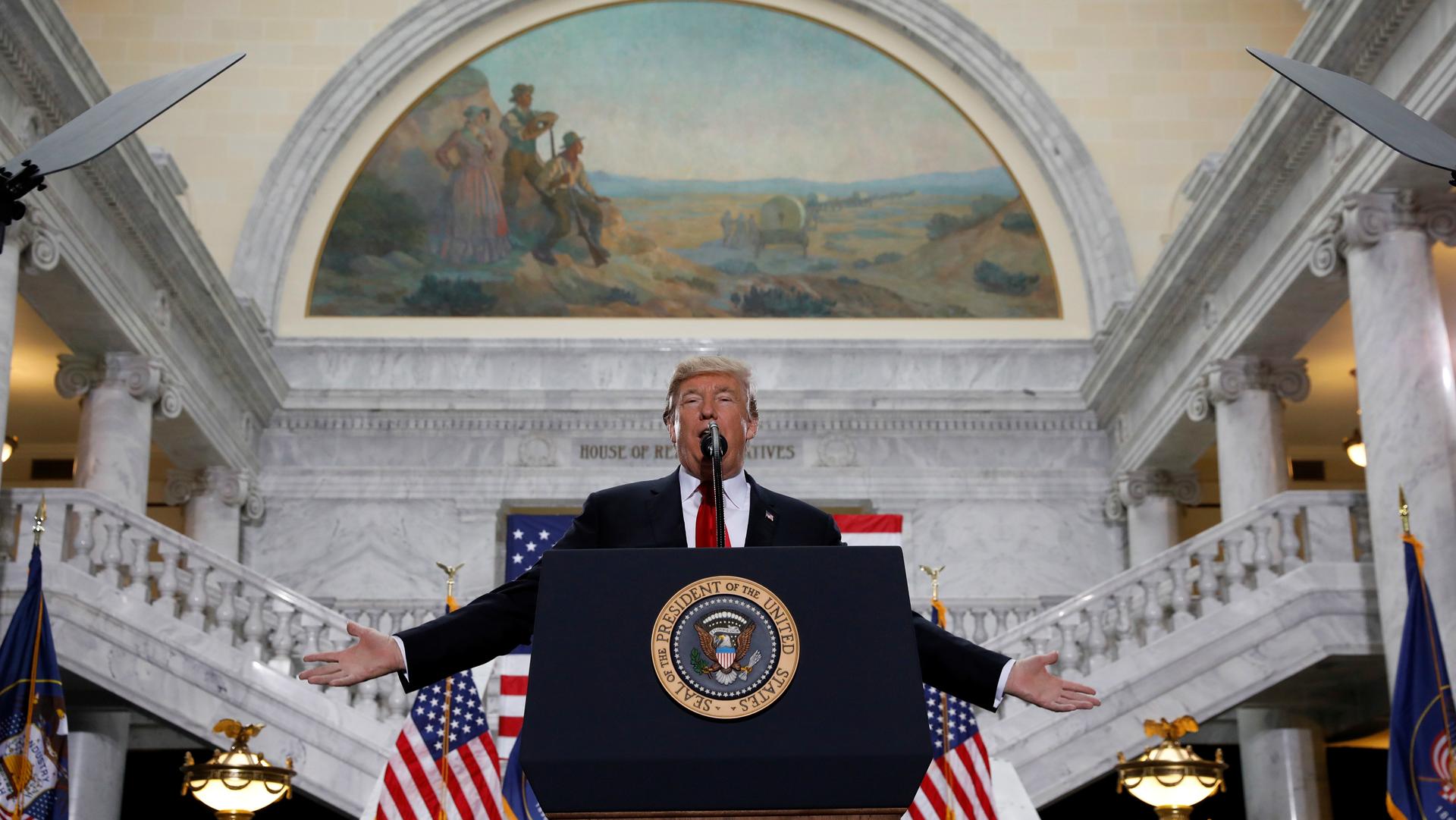Germans see Trump as a bigger problem than North Korea or Russia
US President Donald Trump speaks at the Utah State Capitol, where he announced big cuts to Utah's sprawling wilderness national monuments, in Salt Lake City, Utah, Dec. 4, 2017.
Germans see US President Donald Trump as a bigger challenge for German foreign policy than authoritarian leaders in North Korea, Russia or Turkey, according to a survey by the Koerber Foundation.
Topping the list of foreign policy concerns were refugees, with 26 percent of respondents worried about Germany's ability to cope with inflows of asylum-seekers.
Relations with Trump and the United States ranked second, with 19 percent describing them as a major challenge, followed by Turkey at 17 percent, North Korea at 10 percent and Russia at 8 percent.
Since entering the White House in January, Trump has unsettled Germans by pulling out of the Paris climate accord, refusing to certify an international agreement on Iran's nuclear program and criticizing Germany's trade surplus and its contributions to the NATO military alliance.
Trump's actions prompted the usually cautious German Chancellor Angela Merkel to say earlier this year that Berlin may not be able to rely on the United States in the future. She also urged Europe to take its fate into its own hands.
In the poll of 1,005 Germans of voting age, carried out in October, 56 percent of Germans described the relationship with the United States as bad or very bad.
Despite Merkel's pledge, the survey showed deep skepticism in the population about Germany taking a more active role in international crises, with 52 percent of respondents saying the country should continue its post-war policy of restraint.
That may reflect the fact that neither Merkel nor her main challengers in the recent election campaign talked much about how Germany should respond to the challenges posed by Trump's disruptive presidency and Britain's looming departure from the European Union.
Last week, Norbert Roettgen, a member of Merkel's conservative party and head of the foreign affairs committee in the Bundestag, decried a "deplorable" lack of leadership in educating Germans about the need to invest more in their own defense and security.
The story you just read is available for free because thousands of listeners and readers like you generously support our nonprofit newsroom. Every day, reporters and producers at The World are hard at work bringing you human-centered news from across the globe. But we can’t do it without you: We need your support to ensure we can continue this work for another year.
Make a gift today, and you’ll get us one step closer to our goal of raising $25,000 by June 14. We need your help now more than ever!
